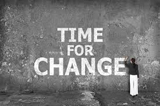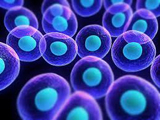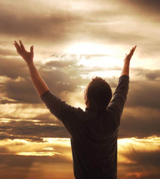Insight
Physician Heal Thyself
Abstract
Change is imperative but man is divided in nature and lacks the inclination to change. He looks to the outside for solutions. He has to change himself first in order to change the world. In his true consciousness however, he has the freedom and will to assert his integrality and with that, the world too will inevitably change.
It is not that humanity does not know or feel the need of a radical change in itself. Everywhere man recognises that if the problems and difficulties that face him have to be solved satisfactorily, there must be a thorough overhauling of his outlook and nature; no mere tinkering with the superficial signs and symptoms of an organic disease by means of palliatives and expediencies and nostrums, but a major operation. Indeed, if he wishes to be cured, he must transcend his present nature and be something else.
And yet he does not change. He has not the sincere will to change. At least he takes the wrong way about it. And the reason is that he does not whole-heartedly adopt the course which he knows to be the only right thing. He is divided in his being: one part knows indeed, but another, the larger, the dynamic part does not profit by that knowledge, ignores it and pursues a contrary path, the accustomed groove of ignorance and laissez-faire.
He consoles and comforts himself, lays the flattering unction to his soul by taking to a less exacting ideal, a substitute without tears, as it were. Therefore he looks outside, seeks to reform society, changing its laws and constitution, and wants to believe that in that way society can be remodelled and mankind transformed.
It should have been proved beyond doubt by now that the fact is not so. The only way to cure the world outside is to cure oneself first inside. The ancient proverb still holds good: the macrocosm is only an enlargement of the microcosm, the microcosm is the macrocosm in miniature. The universe is a transcript, a projection on a large scale of the individual nature within. What is there is here and what is not here is not found there. When we see some wrong in the world, something that has got to be set right, instead of rushing out and trying to tackle it in the external field, if one were to hold oneself back and look within, one would surely find, perhaps to his surprise and enlightenment, a very similar movement, often an exact replica in one’s own consciousness and character of what one finds in the larger anonymous movements of nature and society. Now it may be admitted that one has no control or almost none over one’s nature; the outside world is beyond our reach and we cannot order or mould it as we like. But the smaller world which is ourselves is not too far or too great for us; our own individual nature and character is ours and we have been given sufficient freedom and power to reform, renew and remake it. That is the secret, although it seems to be a very simple truth, almost a truism.
And if we cannot correct and mould as we wish the little world within which is our own, how can we expect to correct or change the vaster outer world? To leave oneself to be as one is and to try to make others change is evidently an absurd and self-contradictory proposition. On the other hand, if the first thing that one does is to correct oneself, then one will find, much to one’s surprise and satisfaction, that there is very little to correct in the world, everything has been already corrected automatically.
Each man is given his little domain within him and he is master of that domain. Nobody is given more (or less even) than what he can successfully manage: the charge is accurately measured according to capacity. One can be indeed a roi fainéant, if one chooses to be so; but that is not man’s inevitable destiny; he can truly be the ruling king and exercise, to the full, his authority. It is a simple truth that man has a will and can wield it. This will he can consciously develop, increase and enlarge, make it an extremely powerful, if not invincible, instrument for action.
Will is a twofold power: it is energy and it is light. True will, will in essential purity, that is to say, when one is perfectly sincere and determined to follow up one’s sincerity, impels rightly and impels infallibly. The consciousness is there of the right thing to do and the energy is also there inherent in that consciousness to work it out inevitably. There is a will belonging to a lower level, to the mind which is only a variant of wish, and in reference to that only it is said that even if the spirit is willing, the flesh is weak. This will is a light, but without the fire that vivifies: and that is because there is a division in the consciousness, “one can love and yet one can betray,” in the words of a famous novelist.
But as we have already said, man is not condemned to this malady of schizophrenia: he is not by nature a Manichean creature. He is whole and entire in his inner reality and true consciousness and he can assert his integrality, he has the freedom and the power to do so — he has to and will do so, since it is not merely a possibility but an inevitability that is to come about in the course of his growth and evolution.
And when he has done so, when he has salvaged himself, by that he will have salvaged the world too around him. The measure of the success within will be the measure of the success without.
Collected Works of Nolini Kanta Gupta, Volume 3. Pondicherry: Sri Aurobindo Ashram Trust; 1972, pp. 171-3.
Nolini Kanta Gupta served as Secretary of the Sri Aurobindo Ashram and, from 1955, as one of its trustees until his death in 1983.
Share with us (Comments,contributions,opinions)
When reproducing this feature, please credit NAMAH,and give the byline. Please send us cuttings.



